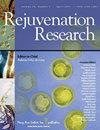Association between arterial stiffness index and age-related diseases: A Mendelian randomization study.
IF 2.6
4区 医学
Q3 GERIATRICS & GERONTOLOGY
引用次数: 0
Abstract
Arterial stiffness is an emerging indicator of cardiovascular risk, but its causal relationship with a variety of age-related diseases is unclear. Objective is to assess the causal relationship between arterial stiffness index (ASI) and age-related diseases by Mendelian randomization (MR) analysis. We obtained instrumental variables associated with age-related diseases from genome-wide association studies (GWAS) of 484,598 European individuals, and data for ASI were obtained from the UK Biobank GWAS of 127,127 participants. We used the inverse variance-weighted (IVW) as the primary analysis method. In addition, several sensitivity analyses including MR-Egger, weighted-median (WM), MR-PRESSO and Cochran's Q test were performed to test the robustness of the results. Reverse MR analysis were also performed to assess reverse Causal relationships between age-related diseases and ASI. We verified causal relationship between eight age-related diseases and ASI, of which cardiovascular disease, gallbladder disease, Liver, biliary or pancreas problem, hypertension, joint disorder and esophageal disorder elevated ASI. In contrast, hyperthyroidism or thyrotoxicosis and bowel problem may reduce ASI. This MR analysis reveals causal relationships between ASI and several age-related diseases. ASI is expected to be a potential indicator of health conditions for older populations.动脉僵化指数与老年相关疾病之间的关系:孟德尔随机研究
动脉僵化是心血管风险的一个新兴指标,但其与各种老年相关疾病的因果关系尚不清楚。目的是通过孟德尔随机化(MR)分析评估动脉僵化指数(ASI)与老年相关疾病之间的因果关系。我们从对 484,598 名欧洲人进行的全基因组关联研究(GWAS)中获得了与年龄相关疾病相关的工具变量,并从对 127,127 名参与者进行的英国生物库 GWAS 中获得了 ASI 数据。我们使用反方差加权(IVW)作为主要分析方法。此外,我们还进行了多项敏感性分析,包括 MR-Egger、加权中值(WM)、MR-PRESSO 和 Cochran's Q 检验,以检验结果的稳健性。我们还进行了反向 MR 分析,以评估年龄相关疾病与 ASI 之间的反向因果关系。我们验证了 8 种与年龄相关的疾病与 ASI 之间的因果关系,其中心血管疾病、胆囊疾病、肝、胆或胰腺疾病、高血压、关节疾病和食管疾病会升高 ASI。相反,甲状腺功能亢进或甲状腺毒症和肠道疾病则会降低 ASI。磁共振分析揭示了 ASI 与几种与年龄有关的疾病之间的因果关系。ASI有望成为老年人健康状况的一个潜在指标。
本文章由计算机程序翻译,如有差异,请以英文原文为准。
求助全文
约1分钟内获得全文
求助全文
来源期刊

Rejuvenation research
医学-老年医学
CiteScore
4.50
自引率
0.00%
发文量
41
审稿时长
3 months
期刊介绍:
Rejuvenation Research publishes cutting-edge, peer-reviewed research on rejuvenation therapies in the laboratory and the clinic. The Journal focuses on key explorations and advances that may ultimately contribute to slowing or reversing the aging process, and covers topics such as cardiovascular aging, DNA damage and repair, cloning, and cell immortalization and senescence.
Rejuvenation Research coverage includes:
Cell immortalization and senescence
Pluripotent stem cells
DNA damage/repair
Gene targeting, gene therapy, and genomics
Growth factors and nutrient supply/sensing
Immunosenescence
Comparative biology of aging
Tissue engineering
Late-life pathologies (cardiovascular, neurodegenerative and others)
Public policy and social context.
 求助内容:
求助内容: 应助结果提醒方式:
应助结果提醒方式:


